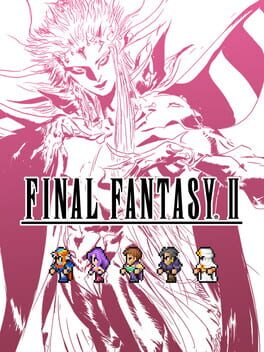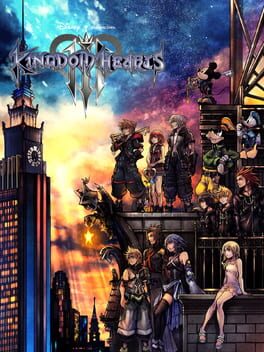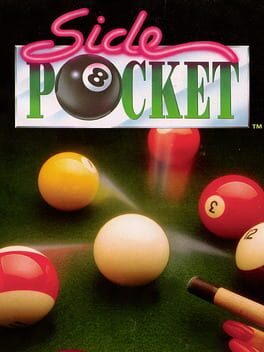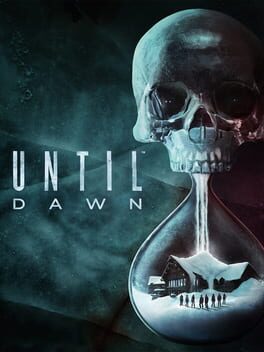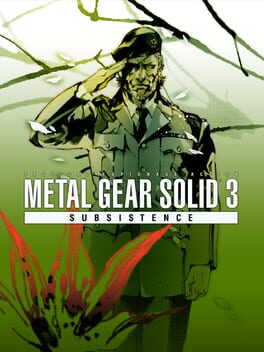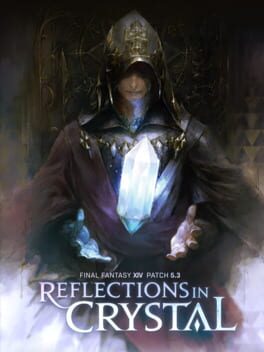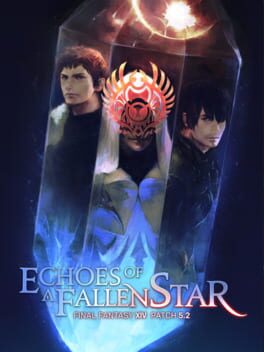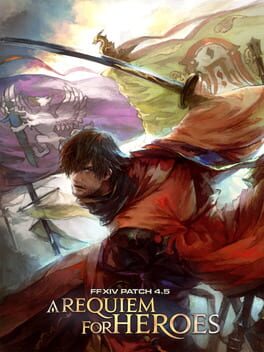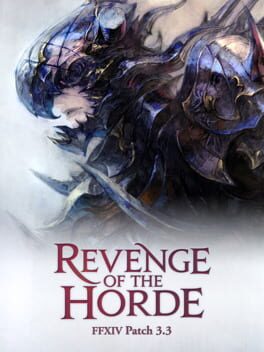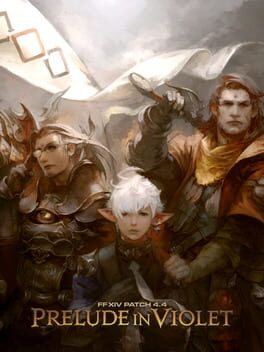7 reviews liked by KarasuXIII
Animal Well
2024
Game's cool. You play as Meatwad. It’s filled with smartly designed puzzles, making engaging use of an oddball toolset that rewards out-of-the-box thinking… but only so much. Beyond manoeuvrability skill checks that are satisfying enough to clear, and a few cool mechanical revelations, there wasn't a lot of head scratching here for me. Animal Well is tremendously well-accomplished for a solo project, I had a great time with it! It's just lacking a certain star power for it to really raise the bar.
For complete transparency, I had this game sold to me as an ‘Outer Wilds-like’ - and upon seeing that it was a sidescrolling metroidvania, I was beside myself with hope that I’d get a few notes of La-Mulana in Animal Well, too. In practice however, I think the more apt comparisons for Animal Well would be games like Environmental Station Alpha, Super Junkoid, A Monster's Expedition, or Knytt. The distinction is important, to me at the very least, because I approached Animal Well with pure intentions but spent most of my runtime hoping for an experience that never actually came. This isn’t a game about losing yourself in the sprawling tendrils of a world’s unfolding internal logic - Animal Well is an array of screens containing pressure plate puzzles. The world feels utilitarian, and even with the animal themed ruins that politely aim to conjure a sense of dread and mystery, it’s all misaligned and mismatched in a way that lacks the cohesion of a place with a history worth learning. The latter end of my runtime was characterised by backtracking through areas to collect the final few tools, but it was made excruciating by way of the fact that practically all of the screens merely become desolate roadways once you’ve solved their focal puzzles. I don’t think I spent any more than five minutes on any given puzzle in the first ‘layer’’ of the game, and for as much as I like how left-field the player toolset is, their interplay with the puzzles themselves is usually shockingly obvious and leaves very little room for doubt.
There is, undeniably, an inclusion of outtadisworld ARG-like puzzles that at the time of writing are still being unfolded by dedicated Animal Well researchers, but I’d be lying if I said I value things like that remotely as much as game content I can be trusted to learn and master on my own. Will the community uncover a secret back half of the game that turns the whole joint on its head Frog Fractions-style? I kind of doubt it lol. I’m a sicko that completed La-Mulana 2 on launch week before any guides were even written, the distinction here is that that series takes great pains to contextualise its puzzles in multiple ways - through cryptic hints and also through things like inferred historicity and synergy. Animal Well doesn’t do this, it scatters codes and event flags around the map in obscure nooks in the hopes that a friend group is putting together a Google Doc.
For complete transparency, I had this game sold to me as an ‘Outer Wilds-like’ - and upon seeing that it was a sidescrolling metroidvania, I was beside myself with hope that I’d get a few notes of La-Mulana in Animal Well, too. In practice however, I think the more apt comparisons for Animal Well would be games like Environmental Station Alpha, Super Junkoid, A Monster's Expedition, or Knytt. The distinction is important, to me at the very least, because I approached Animal Well with pure intentions but spent most of my runtime hoping for an experience that never actually came. This isn’t a game about losing yourself in the sprawling tendrils of a world’s unfolding internal logic - Animal Well is an array of screens containing pressure plate puzzles. The world feels utilitarian, and even with the animal themed ruins that politely aim to conjure a sense of dread and mystery, it’s all misaligned and mismatched in a way that lacks the cohesion of a place with a history worth learning. The latter end of my runtime was characterised by backtracking through areas to collect the final few tools, but it was made excruciating by way of the fact that practically all of the screens merely become desolate roadways once you’ve solved their focal puzzles. I don’t think I spent any more than five minutes on any given puzzle in the first ‘layer’’ of the game, and for as much as I like how left-field the player toolset is, their interplay with the puzzles themselves is usually shockingly obvious and leaves very little room for doubt.
There is, undeniably, an inclusion of outtadisworld ARG-like puzzles that at the time of writing are still being unfolded by dedicated Animal Well researchers, but I’d be lying if I said I value things like that remotely as much as game content I can be trusted to learn and master on my own. Will the community uncover a secret back half of the game that turns the whole joint on its head Frog Fractions-style? I kind of doubt it lol. I’m a sicko that completed La-Mulana 2 on launch week before any guides were even written, the distinction here is that that series takes great pains to contextualise its puzzles in multiple ways - through cryptic hints and also through things like inferred historicity and synergy. Animal Well doesn’t do this, it scatters codes and event flags around the map in obscure nooks in the hopes that a friend group is putting together a Google Doc.
Final Fantasy XVI
2023
I considered strongly putting together a long-form critique of this game, but the most damning statement I could possibly make about Final Fantasy XVI is that I truly don't think it's worth it. The ways in which I think this game is bad are not unique or interesting: it is bad in the same way the vast majority of these prestige Sony single-player exclusives are. Its failures are common, predictable, and depressingly endemic. It is bad because it hates women, it is bad because it treats it's subject matter with an aggressive lack of care or interest, it is bad because it's imagination is as narrow and constrained as it's level design. But more than anything else, it is bad because it only wants to be Good.
Oxymoronic a statement as it might appear, this is core to the game's failings to me. People who make games generally want to make good games, of course, but paired with that there is an intent, an interest, an idea that seeks to be communicated, that the eloquence with which it professes its aesthetic, thematic, or mechanical goals will produce the quality it seeks. Final Fantasy XVI may have such goals, but they are supplicant to its desire to be liked, and so, rather than plant a flag of its own, it stitches together one from fabric pillaged from the most immediate eikons of popularity and quality - A Song of Ice and Fire, God of War, Demon Slayer, Devil May Cry - desperately begging to be liked by cloaking itself in what many people already do, needing to be loved in the way those things are, without any of the work or vision of its influences, and without any charisma of its own. Much like the patch and DLC content for Final Fantasy XV, it's a reactionary and cloying work that contorts itself into a shape it thinks people will love, rather than finding a unique self to be.
From the aggressively self-serious tone that embraces wholeheartedly the aesthetics of Prestige Fantasy Television with all its fucks and shits and incest and Grim Darkness to let you know that This Isn't Your Daddy's Final Fantasy, without actually being anywhere near as genuinely Dark, sad, or depressing as something like XV, from combat that borrows the surface-level signifiers of Devil May Cry combat - stingers, devil bringers, enemy step - but without any actual opposition or reaction of that series' diverse and reactive enemy set and thoughtful level design, or the way there's a episode of television-worth of lectures from a character explaining troop movements and map markers that genuinely do not matter in any way in order to make you feel like you're experiencing a well thought-out and materially concerned political Serious Fantasy, Final Fantasy XVI is pure wafer-thin illusion; all the surface from it's myriad influences but none of the depth or nuance, a greatest hits album from a band with no voice to call their own, an algorithmically generated playlist of hits that tunelessly resound with nothing. It looks like Devil May Cry, but it isn't - Devil May Cry would ask more of you than dodging one attack at a time while you perform a particularly flashy MMO rotation. It looks like A Song of Ice and Fire, but it isn't - without Martin's careful historical eye and materialist concerns, the illusion that this comes even within striking distance of that flawed work shatters when you think about the setting for more than a moment.
In fairness, Final Fantasy XVI does bring more than just the surface level into its world: it also brings with it the nastiest and ugliest parts of those works into this one, replicated wholeheartedly as Aesthetic, bereft of whatever semblance of texture and critique may have once been there. Benedikta Harman might be the most disgustingly treated woman in a recent work of fiction, the seemingly uniform AAA Game misogyny of evil mothers and heroic, redeemable fathers is alive and well, 16's version of this now agonizingly tired cliche going farther even than games I've railed against for it in the past, which all culminates in a moment where three men tell the female lead to stay home while they go and fight (despite one of those men being a proven liability to himself and others when doing the same thing he is about to go and do again, while she is not), she immediately acquiesces, and dutifully remains in the proverbial kitchen. Something that thinks so little of women is self-evidently incapable of meaningfully tackling any real-world issue, something Final Fantasy XVI goes on to decisively prove, with its story of systemic evils defeated not with systemic criticism, but with Great, Powerful Men, a particularly tiresome kind of rugged bootstrap individualism that seeks to reduce real-world evils to shonen enemies for the Special Man with Special Powers to defeat on his lonesome. It's an attempt to discuss oppression and racism that would embarrass even the other shonen media it is clearly closer in spirit to than the dark fantasy political epic it wears the skin of. In a world where the power fantasy of the shonen superhero is sacrosanct over all other concerns, it leads to a conclusion as absurd and fundamentally unimaginative as shonen jump's weakest scripts: the only thing that can stop a Bad Guy with an Eikon is a Good Guy with an Eikon.
In borrowing the aesthetics of the dark fantasy - and Matsuno games - it seeks to emulate, but without the nuance, FF16 becomes a game where the perspective of the enslaved is almost completely absent (Clive's period as a slave might as well not have occurred for all it impacts his character), and the power of nobility is Good when it is wielded by Good Hands like Lord Rosfield, a slave owner who, despite owning the clearly abused character who serves as our introduction to the bearers, is eulogized completely uncritically by the script, until a final side quest has a character claim that he was planning to free the slaves all along...alongside a letter where Lord Rosfield discusses his desire to "put down the savages". I've never seen attempted slave owner apologia that didn't reveal its virulent underlying racism, and this is no exception. In fact, any time the game attempts to put on a facade of being about something other than The Shonen Hero battling other Kamen Riders for dominance, it crumbles nigh-immediately; when Final Fantasy 16 makes its overtures towards the Power of Friendship, it rings utterly false and hollow: Clive's friends are not his power. His power is his power.
The only part of the game that truly spoke to me was the widely-derided side-quests, which offer a peek into a more compelling story: the story of a man doing the work to build and maintain a community, contributing to both the material and emotional needs of a commune that attempts to exist outside the violence of society. As tedious as these sidequests are - and as agonizing as their pacing so often is - it's the only part of this game where it felt like I was engaging with an idea. But ultimately, even this is annihilated by the game's bootstrap nonsense - that being that the hideaway is funded and maintained by the wealthy and influential across the world, the direct beneficiaries and embodiments of the status quo funding what their involvement reveals to be an utterly illusionary attempt to escape it, rendering what could be an effective exploration of what building a new idea of a community practically looks like into something that could be good neighbors with Galt's Gulch.
In a series that is routinely deeply rewarding for me to consider, FF16 stands as perhaps its most shallow, underwritten, and vacuous entry in decades. All games are ultimately illusions, of course: we're all just moving data around spreadsheets, at the end of the day. But - as is the modern AAA mode de jour - 16 is the result of the careful subtraction of texture from the experience of a game, the removal of any potential frictions and frustrations, but further even than that, it is the removal of personality, of difference, it is the attempt to make make the smoothest, most likable affect possible to the widest number of people possible. And, just like with its AAA brethren, it has almost nothing to offer me. It is the affect of Devil May Cry without its texture, the affect of Game of Thrones without even its nuance, and the affect of Final Fantasy without its soul.
Final Fantasy XVI is ultimately a success. It sought out to be Good, in the way a PS5 game like this is Good, and succeeded. And in so doing, it closed off any possibility that it would ever reach me.
It doesn’t really surprise me that each positive sentiment I have seen on Final Fantasy XVI is followed by an exclamation of derision over the series’ recent past. Whether the point of betrayal and failure was in XV, or with XIII, or even as far back as VIII, the rhetorical move is well and truly that Final Fantasy has been Bad, and with XVI, it is good again. Unfortunately, as someone who thought Final Fantasy has Been Good, consistently, throughout essentially the entire span of it's existence, I find myself on the other side of this one.
Final Fantasy XV convinced me that I could still love video games when I thought, for a moment, that I might not. That it was still possible to make games on this scale that were idiosyncratic, personal, and deeply human, even in the awful place the video game industry is in.
Final Fantasy XVI convinced me that it isn't.
Oxymoronic a statement as it might appear, this is core to the game's failings to me. People who make games generally want to make good games, of course, but paired with that there is an intent, an interest, an idea that seeks to be communicated, that the eloquence with which it professes its aesthetic, thematic, or mechanical goals will produce the quality it seeks. Final Fantasy XVI may have such goals, but they are supplicant to its desire to be liked, and so, rather than plant a flag of its own, it stitches together one from fabric pillaged from the most immediate eikons of popularity and quality - A Song of Ice and Fire, God of War, Demon Slayer, Devil May Cry - desperately begging to be liked by cloaking itself in what many people already do, needing to be loved in the way those things are, without any of the work or vision of its influences, and without any charisma of its own. Much like the patch and DLC content for Final Fantasy XV, it's a reactionary and cloying work that contorts itself into a shape it thinks people will love, rather than finding a unique self to be.
From the aggressively self-serious tone that embraces wholeheartedly the aesthetics of Prestige Fantasy Television with all its fucks and shits and incest and Grim Darkness to let you know that This Isn't Your Daddy's Final Fantasy, without actually being anywhere near as genuinely Dark, sad, or depressing as something like XV, from combat that borrows the surface-level signifiers of Devil May Cry combat - stingers, devil bringers, enemy step - but without any actual opposition or reaction of that series' diverse and reactive enemy set and thoughtful level design, or the way there's a episode of television-worth of lectures from a character explaining troop movements and map markers that genuinely do not matter in any way in order to make you feel like you're experiencing a well thought-out and materially concerned political Serious Fantasy, Final Fantasy XVI is pure wafer-thin illusion; all the surface from it's myriad influences but none of the depth or nuance, a greatest hits album from a band with no voice to call their own, an algorithmically generated playlist of hits that tunelessly resound with nothing. It looks like Devil May Cry, but it isn't - Devil May Cry would ask more of you than dodging one attack at a time while you perform a particularly flashy MMO rotation. It looks like A Song of Ice and Fire, but it isn't - without Martin's careful historical eye and materialist concerns, the illusion that this comes even within striking distance of that flawed work shatters when you think about the setting for more than a moment.
In fairness, Final Fantasy XVI does bring more than just the surface level into its world: it also brings with it the nastiest and ugliest parts of those works into this one, replicated wholeheartedly as Aesthetic, bereft of whatever semblance of texture and critique may have once been there. Benedikta Harman might be the most disgustingly treated woman in a recent work of fiction, the seemingly uniform AAA Game misogyny of evil mothers and heroic, redeemable fathers is alive and well, 16's version of this now agonizingly tired cliche going farther even than games I've railed against for it in the past, which all culminates in a moment where three men tell the female lead to stay home while they go and fight (despite one of those men being a proven liability to himself and others when doing the same thing he is about to go and do again, while she is not), she immediately acquiesces, and dutifully remains in the proverbial kitchen. Something that thinks so little of women is self-evidently incapable of meaningfully tackling any real-world issue, something Final Fantasy XVI goes on to decisively prove, with its story of systemic evils defeated not with systemic criticism, but with Great, Powerful Men, a particularly tiresome kind of rugged bootstrap individualism that seeks to reduce real-world evils to shonen enemies for the Special Man with Special Powers to defeat on his lonesome. It's an attempt to discuss oppression and racism that would embarrass even the other shonen media it is clearly closer in spirit to than the dark fantasy political epic it wears the skin of. In a world where the power fantasy of the shonen superhero is sacrosanct over all other concerns, it leads to a conclusion as absurd and fundamentally unimaginative as shonen jump's weakest scripts: the only thing that can stop a Bad Guy with an Eikon is a Good Guy with an Eikon.
In borrowing the aesthetics of the dark fantasy - and Matsuno games - it seeks to emulate, but without the nuance, FF16 becomes a game where the perspective of the enslaved is almost completely absent (Clive's period as a slave might as well not have occurred for all it impacts his character), and the power of nobility is Good when it is wielded by Good Hands like Lord Rosfield, a slave owner who, despite owning the clearly abused character who serves as our introduction to the bearers, is eulogized completely uncritically by the script, until a final side quest has a character claim that he was planning to free the slaves all along...alongside a letter where Lord Rosfield discusses his desire to "put down the savages". I've never seen attempted slave owner apologia that didn't reveal its virulent underlying racism, and this is no exception. In fact, any time the game attempts to put on a facade of being about something other than The Shonen Hero battling other Kamen Riders for dominance, it crumbles nigh-immediately; when Final Fantasy 16 makes its overtures towards the Power of Friendship, it rings utterly false and hollow: Clive's friends are not his power. His power is his power.
The only part of the game that truly spoke to me was the widely-derided side-quests, which offer a peek into a more compelling story: the story of a man doing the work to build and maintain a community, contributing to both the material and emotional needs of a commune that attempts to exist outside the violence of society. As tedious as these sidequests are - and as agonizing as their pacing so often is - it's the only part of this game where it felt like I was engaging with an idea. But ultimately, even this is annihilated by the game's bootstrap nonsense - that being that the hideaway is funded and maintained by the wealthy and influential across the world, the direct beneficiaries and embodiments of the status quo funding what their involvement reveals to be an utterly illusionary attempt to escape it, rendering what could be an effective exploration of what building a new idea of a community practically looks like into something that could be good neighbors with Galt's Gulch.
In a series that is routinely deeply rewarding for me to consider, FF16 stands as perhaps its most shallow, underwritten, and vacuous entry in decades. All games are ultimately illusions, of course: we're all just moving data around spreadsheets, at the end of the day. But - as is the modern AAA mode de jour - 16 is the result of the careful subtraction of texture from the experience of a game, the removal of any potential frictions and frustrations, but further even than that, it is the removal of personality, of difference, it is the attempt to make make the smoothest, most likable affect possible to the widest number of people possible. And, just like with its AAA brethren, it has almost nothing to offer me. It is the affect of Devil May Cry without its texture, the affect of Game of Thrones without even its nuance, and the affect of Final Fantasy without its soul.
Final Fantasy XVI is ultimately a success. It sought out to be Good, in the way a PS5 game like this is Good, and succeeded. And in so doing, it closed off any possibility that it would ever reach me.
It doesn’t really surprise me that each positive sentiment I have seen on Final Fantasy XVI is followed by an exclamation of derision over the series’ recent past. Whether the point of betrayal and failure was in XV, or with XIII, or even as far back as VIII, the rhetorical move is well and truly that Final Fantasy has been Bad, and with XVI, it is good again. Unfortunately, as someone who thought Final Fantasy has Been Good, consistently, throughout essentially the entire span of it's existence, I find myself on the other side of this one.
Final Fantasy XV convinced me that I could still love video games when I thought, for a moment, that I might not. That it was still possible to make games on this scale that were idiosyncratic, personal, and deeply human, even in the awful place the video game industry is in.
Final Fantasy XVI convinced me that it isn't.
The Legend of Zelda
1986
Final Fantasy II
2021
Final Fantasy 2 is consistently talked about as the black sheep of the Final Fantasy games. Now I can only speak on this Pixel Remaster as this was my first experience with it. But I always heard about this extreme grinding you had to do to complete the game and I don’t get it. I never had any problems during any point of the game. I do get the leveling system is different and not a great way of going about it. I think they did the right thing trying something new to further their franchise it just did not work out for them in a very similar fashion to Zelda 2, Mario2, and Castlevania 2. While it wasn’t the best it’s is not nearly as bad as people make it out to be in my opinion.
The story was a major upgrade from the original as were the character. The originals story was told in like 10 minutes at the very end and was convoluted. This story, while not the best, at least played out throughout the game and made sense. While the characters didn’t have any real depth, they were at least named characters with some dialog. The 4th rotating character was a cool idea and I enjoyed all of them outside of the final character you end the game with. The music was also better in the 2nd attempt as well.
This isn’t the best game in the series but is is severely underrated and worth a playthrough.
The story was a major upgrade from the original as were the character. The originals story was told in like 10 minutes at the very end and was convoluted. This story, while not the best, at least played out throughout the game and made sense. While the characters didn’t have any real depth, they were at least named characters with some dialog. The 4th rotating character was a cool idea and I enjoyed all of them outside of the final character you end the game with. The music was also better in the 2nd attempt as well.
This isn’t the best game in the series but is is severely underrated and worth a playthrough.



